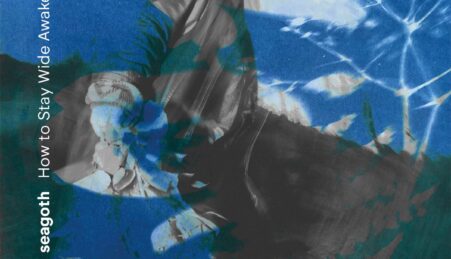By Neil Harrison
Two huge cheques, each worth a life-changing £10,000, are once again beginning to burn a hole in the coffers of one of the most exciting writing competitions around. Since its inception in 2008, the Manchester Writing Competition has emerged as a highlight of the literary awards calendar, specializing in discovering and showcasing the finest up-and-coming talent.
One of many exciting ventures launched by the Manchester Writing School and under the directorship of Poet Laureate, Carol Ann Duffy, the competition has taken only a relatively short space of time to unearth a wealth of talent from the worlds of both poetry and fiction. Here, we speak to a selection of previous winners to find out exactly how it feels to enter, and win, the Manchester Writing Competition.
Richard Hirst

Richard Hirst
On being announced joint winner of the 2011 Fiction Prize, Richard Hirst describes his initial reaction as one of “Excitement. Pride. Nausea.” Thankfully the nausea was to eventually dissipate, but only after “a couple of weeks of anxiety dreams in which I lost and was ridiculed by childhood nemeses.” Richard continues,
“The Manchester Writing Competition was the first competition I’d entered. I was vaguely hopeful of getting on the longlist, but didn’t really expect anything to come of it. So it was a shock – and a revelation – to discover that the weird, creepy things that interest me, which I tend to write about, might just be of interest to others and that they might also be able to earn me money.”
He says that winning the prize gave his writing a focus which he had previously lacked.
“These days, I’m more confident and feel I know what I’m doing. I’m working on a bunch of projects – more short stories, a novel, a publishing project which is currently producing its second book of ghost stories, and various other secret bits and pieces– none of which I’d be taking on without the lift that winning the Manchester Fiction Prize gave me.
“I’d advise absolutely anyone who’s serious about writing to enter, regardless of whether they think they’re ‘advanced’ enough. There are countless short story competitions out there, and it’s daunting trying to decide which one to pick to send your stuff to. From my own experience, Manchester Writing Competition is a competition which looks for good writing – well-crafted and elegant – but also rewards stuff which is dark and weird and challenging.
“If you’re a writer who considers yourself to be a non-professional, the opportunity to genuinely prove the worth of your work in this way is, as far as I’m aware, pretty rare and the Manchester Writing Competition is fairly unique in offering it.”
Find out more about Richard’s many and varied projects at ithoughtitoldyoutowaitinthecar.com
Mandy Coe

Mandy Coe
Following her victorious evening in 2008, Mandy Coe recalls, “Arriving in my street in the early hours, I looked up to see a neighbour leaning out of her bedroom window whispering, ‘Well done poet!’ It still makes me smile.”
Mandy says that, as the competition organisers ask for a portfolio rather than a single poem, “winning [feels] more like a validation of the poet, rather than validation of a poem.”
“This is the Manchester Writing School’s approach: working to promote new poetry and prose whilst also encouraging the writer. From the initial phone call to the prize-giving event, you feel supported.
“It was great to be awarded the prize by three such strong writers (Carol Ann Duffy, Imtiaz Dharker and Gillian Clarke). Writers need willpower to keep progressing, but a boost to the confidence like this certainly helps.”
And did the prize money come in handy? Mandy says, “I’m a poet. Any amount of money is life-changing.”
Visit mandycoe.com for more info on Mandy.
Krishan Coupland

Krishan Coupland
Confidence is a recurring theme when speaking to past winners of the competition and Krishan Coupland is no exception. He says,
“Winning the competition gave me the confidence I needed to take my writing more seriously, that’s probably one of the most important things I got from it. Although I was glad to have been shortlisted, I’d never seriously considered that I would actually win. Being immensely socially awkward, I didn’t really know what to do [on the night] so I just smiled a lot and thanked people. That seemed like a safe way to go.
“If I hadn’t won the prize, I’m sure my life would be quite different, and possibly a lot less focussed. I wasn’t sure about entering in the first place, but I’m very glad that I did. Although it may seem like a long shot, someone does have to win. It’s a well-organised competition, and it’s very open and receptive to writers who might not yet be established in their career.”
“It also drew some attention to me, and to my other stories. Due to the aforementioned immense social awkwardness, I found this terrifying at first. Overall though, it was very positive. It lead to several more opportunities to publish my work or collaborate on projects with other people.
You can find out more about Krishan at krishancoupland.co.uk
Lesley Saunders

Lesley Saunders. Photo c/o Dwain Commisiong
Lesley Saunders says she would “absolutely” recommend the competition to poets. “It’s very important to feel you’ve worked hard enough on your poems that a group of them will stand up against what I’m sure is stiff competition from one’s peers and rigorous discussion by the judges.”
Lesley says that the prize money, which she shared in 2008 with Mandy Coe (see above), was, for her, “not life-changing – but certainly life-affirming.”
“I’d just given up my full-time job and the prize money (which, of course, I shared with Mandy) meant that I didn’t have to worry at all that the first few months would be financially difficult.”
Since winning the prize (and being shortlisted again in 2010!) Lesley has gone on to have books published including Cloud Camera (2012, Two Rivers Press) and The Walls Have Angels (2014, Mulfran Press). Her poem ‘Fray’ is one of the commended poems of this year’s 2014 Hippocrates Prize for Poetry and Medicine.
More about Lesley at lesleysaunders.org.uk
Helen Mort

Helen Mort. Photo c/o Matthew Hedley Stoppard
Helen, who scooped the Young Poet Prize in 2008, described winning the prize as a “huge confidence boost.”
“I was in shock, I think. Of course, you always imagine what it would be like to win a prize like that, but you never really expect it to happen right up to the moment when they announce your name. I felt really proud as well because my dad and my oldest friend were both in the audience. The atmosphere at the event was wonderful and it felt very special to be part of the reading and to get the chance to hear such a variety of work.”
Asked how winning the prize has affected her writing career, Helen replied, “It gave me the confidence to apply for a residency at The Wordsworth Trust which, in turn, gave me the time and support to work on my first collection Division Street which was published last September. Winning a prize like the Manchester Writing Competition has such a crucial knock-on effect.
“I used [the prize money] to buy my first car (which I subsequently crashed a couple of years later, but it had a good innings!) I used it to drive around the country after work – going to as many poetry readings as I could. I remember setting off as soon as I finished work one night to get to Oxford to see Don Paterson read, driving home after midnight and getting up for work the next day. I couldn’t have done that without the prize money!”
Read Helen’s Blog at poetryonthebrain.blogspot.co.uk
The Young Poet Prize is no longer running as part of the Manchester Writing Competition.
Judy Brown

Judy Brown
Judy Brown, winner of the Poetry Prize in 2010, is effusive with praise about the Manchester Writing Competition. She describes it as “an unusual competition which generates a real buzz. I like the way a small group of poems are submitted and even being shortlisted is a special experience.”
Since winning, Judy has gone on to hold the much coveted post of Poet in Residence at the Wordsworth Trust. She believes that winning the prize “really helped” her towards this goal.
“It’s precious to have won a prestigious award like this, and one which involved being chosen from such impressive competition by judges I really admire. [The prize money] was a huge sum, money you could live on – and decently – for a really long time, and I did just that when I left my job a year or so later, until I took up the residency at the Wordsworth Trust. There’s still some left, which will, among other things, buy some space to work on my second book this year. The amount is jaw-dropping, it alters not just your sense of what might be possible for your writing, but many practical realities relating to your ability to devote stretches of time to it.”
Find out more about Judy at judy-brown.co.uk
The deadline for entries to the 2014 competition is Friday 29th August. For more information visit www.manchesterwritingcompetition.co.uk
Neil Harrison is Editor in Chief at Humanity Hallows. Follow him on Twitter @looseriver












Leave a reply